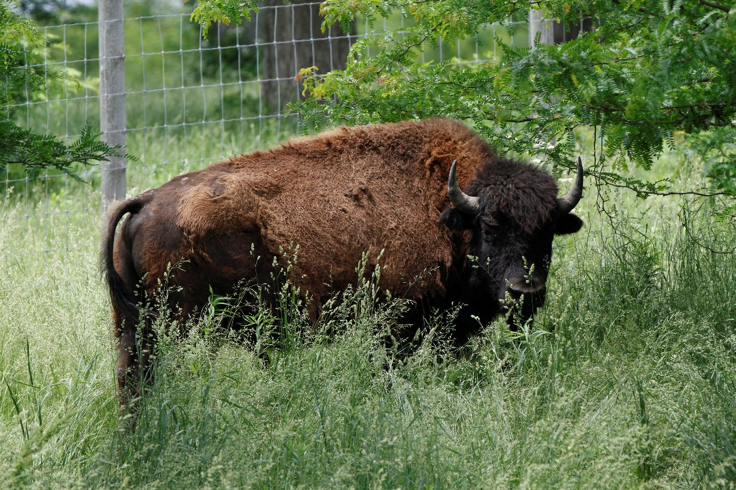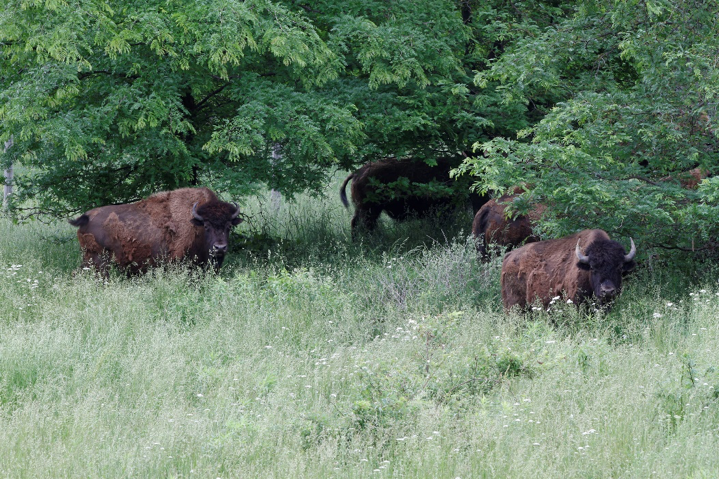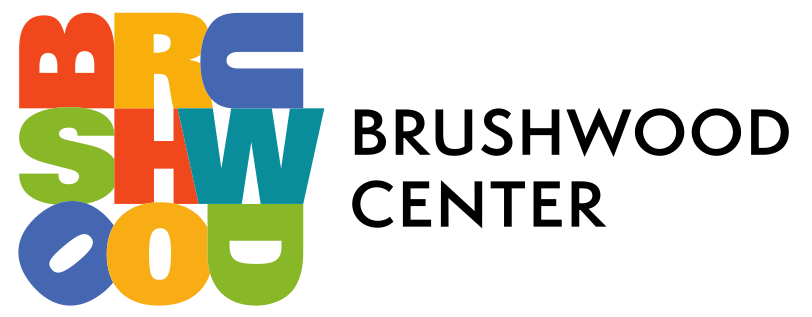|
In honor of National Bison Day, contributing author Isabelle Cadrot interviewed Joseph Standing Bear Schranz, President of the Midwest SOARRING Foundation, for this feature on the cultural significance of bison in indigenous culture. National Bison Day is commemorated annually on the first Saturday of November to celebrate the cultural, economic and historical significance of bison. Photography by Lynn Anderson. Midwest SOARRING (Save Our Ancestor's Remains & Resources Indigeneous Network Group) Foundation has been growing its own bison herd since 1999 when the organization saved a four-year-old female bison named “Broken Horn” from slaughter. Midwest SOARRING Foundation is a Native American organization founded in 1996 to repatriate indigenous remains and resources, protect sacred sites, educate the public, and build community with all people around indigenous cultures. More bison were donated and saved from the butcher, and thanks to breeding, the herd has grown to several dozen animals. The herd is currently located on a Midwest SOARRING Foundation member’s farm in LeRoy, Illinois, where they are free to roam 30 acres of fenced land. Several tribes across the country support bison herds for food and ceremonial purposes, but Midwest SOARRING Foundation President Joseph Standing Bear Schranz, Ojibwe, has always envisioned keeping these bison as a “spirit herd” never to be used for consumption. In an October interview with Brushwood Center, Schranz said he sees the creation and preservation of the herd as a way to honor the bison “for everything they did for our people.” Bison are a symbol of endurance and strength for native peoples and Schranz believes herds like this are symbolic of native people’s survival in a world when the odds are often stacked against them. The American Bison, America’s largest land mammal, was so abundant before Europeans colonized North America that experts estimate they numbered 30 to 70 million. To many Native American tribes, the bison was a spiritual symbol and essential resource for food, clothing, tools, and shelter. Once the United States was founded and expanded over the continent, native peoples were forced from their ancestral lands onto reservations and were killed by conflict and disease. Their story mirrored that of the bison, which suffered from diminished habitat, mass slaughter for their hides and pelts, and exposure to diseases introduced by cows. By the late 1800s, bison were on the verge of extinction with only a few hundred animals remaining in the United States. Without this source of livelihood, many Native American tribes were more easily confined to reservations. Despite the attempts to erase them, native peoples and the bison survived, and there are efforts underway to reintroduce bison back to the landscape and into the lives of native peoples. Midwest SOARRING Foundation is determined to honor this ancient connection and restore hope in a future where all people are more connected with the natural world. “If we can make some bison survive, we have a chance to, as well. It's a spirituality thing between us and the four-leggeds. I think it's really important that we protect them, and I've tried my very best,” expressed Schranz. Schranz described how the decimation of tribes has left scars on native people, who experience poverty and unemployment at rates much higher than the national average. Native peoples also suffer from higher than average school drop-out, addiction, and suicide rates. Access to quality housing and healthy food can be limited, with gas stations often being the only option for buying food on reservations – a contributing factor to the high diabetes rate among Native Americans. This is an especially personal issue for Schranz, who struggles with diabetes himself. Schranz believes the lack of good nutrition in native communities is part of a greater societal disconnect from food, and he thinks the Midwest SOARRING bison give people of all backgrounds an opportunity to examine their relationship with the animals that feed us. Before the Covid-19 pandemic, Midwest SOARRING took visitors on wagon rides to connect up-close with the bison and the wild origins of food. Referencing our fast-food culture, Schranz explains, “The loss is that you don't see what that animal had to do to give its life for you. You don't see the spirit of the animal. So, I encourage people when they’re with us to look into the animal’s eyes and appreciate what they're going through in order to make you survive.” Bringing bison back is not only a symbol of hope for Native Americans and an opportunity for people to connect to the natural world, but it is important for rebalancing native ecosystems. Despite bisons’ thundering size, they have a lesser impact on the native environment than their bovine cousins, cows. Unlike cows, bison are native to North America and evolved a unique relationship with the continent’s grassland ecosystems. Schranz says that bison do not eat native grasses down to the roots like cows do, which allows native grasses to more easily regrow and leads to a much lighter impact on the land. Restoring these animals to the land has many tangible benefits for people and the environment, but caring for a bison spirit herd has its own challenges. The farm where the bison currently live is up for sale, and Midwest SOARRING Foundation is searching for the herd’s next home. Unfortunately, the spirit herd has been a hard sell for some tribes and organizations that cannot commit to leaving the herd as a spirit herd and want the option of using the bison for food. Transporting the bison is also challenging, because the equipment needs are costly. Midwest SOARRING is fundraising to cover these expenses and remains hopeful that the bison will find a lasting home. The herd has given Schranz hope for a future where all people are more interconnected with the circle of life and appreciate the richness different people and creatures bring to our world. He is excited to continue Midwest SOARRING Foundation’s bison restoration in the future and has exciting plans to build a cultural center to celebrate native lifeways, build community, and provide a home to more bison. Schranz expressed, “I often tell people I don't care where you're from. There's no more important thing you can do than create a healthy thriving community.” If you would like to learn more about or support the Midwest SOARRING Foundation, Joseph Standing Bear Schranz, and the organization’s work with bison, please visit https://www.midwestsoarring.org/index.html . Many thanks to Joseph for generously sharing his time and story.
1 Comment
S. Garza
11/11/2020 09:39:20 pm
Interesting article. Past, present, and future, are all here. May the Midwest SOARRING Foundation find a new home to grow their bison herd.
Reply
Leave a Reply. |
AuthorThis blog is written by the staff and partners of Brushwood Center at Ryerson Woods Archives
February 2022
Categories |
|
21850 N. Riverwoods Rd.
Riverwoods, IL 60015 224.633.2424 [email protected] ABOUT BRUSHWOOD BECOME A PARTNER VOLUNTEER AND JOB OPPORTUNITIES |
Brushwood Center at Ryerson Woods is committed to enabling the participation and enjoyment of our programming and events for all visitors. At Brushwood Center, you will have open access to accessible parking and entrance to the house, a gender neutral bathroom, and changing tables.
If you require certain accommodations in order to observe or attend our events, or have questions regarding accessibility of our facilities, please contact our Director of Public Programs and Music, Parker Nelson, at [email protected] or at (224) 633-2424 ext. 1. Programming and events at Brushwood Center are available to everyone, including but not limited to age, disability, gender, marital status, national origin, race, religion, and sexual orientation. Site Photography by: In Life Photography, Michael Kardas Photography, Ewa Pasek Photography, Brushwood Staff, and Josiah Shaw Productions |
OPEN TO THE PUBLIC Monday - Thursday & Saturday: 10am - 3pm Sunday: 1pm - 3pm and by appointment |


 RSS Feed
RSS Feed
